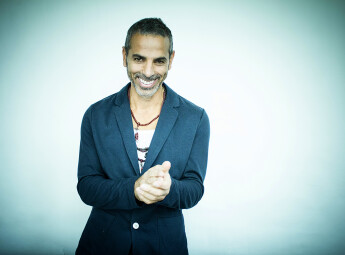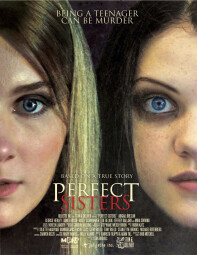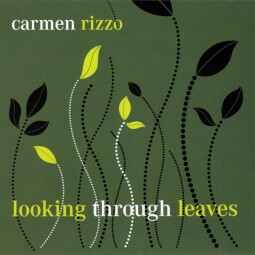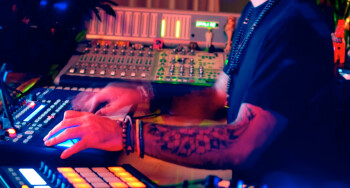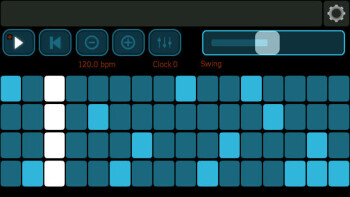Talk about multi-talented: L.A.-based Carmen Rizzo is a two-time Grammy-nominated producer/artist/electronic musician and composer whose credits include Seal, Coldplay, Paul Oakenfold and Ryuichi Sakamato, among many others. He's released 6 solo albums; writes scores for films, video games and TV; has produced numerous artists; and is also the U.S. artist-relations director for Native Instruments. He talks here about the changing state of the music industry, promoting via social media and lots more.
What’s the most interesting musical project you’ve done lately?
I’ve been trying to do more film composing. I just did a score of a new movie called Perfect Sisters. It’s a feature film. It has some pretty good power, it had Abigail Breslin who’s an Oscar winner, and Mira Sorvino. It had like three Oscar nominees in it.
What’s the biggest difference between doing a song project and a movie score?
Basically, when doing music for a film project there usually are many rules and boundaries to follow from a director, as opposed to working on your own album, where you can take chances and usually please yourself. I’m certain all directors want the composer to be free musically but at the end of the day there are many people you have to please first.
Speaking of movies, you recently did an interview for the movie, Unsound, about the problem of making money from music in the digital age.
This friend of mine is a producer-engineer guy from San Francisco and we have a lot of mutual friends. He recently did the Tyco record, which there’s a big buzz about. He reached out to me and said, “Hey, I’m in LA, do you mind if come over to your place and interview you for this film.” I didn’t know what it was about, but when I saw the trailer I was sort of half in tears and half motivated in a funny way, because I told him, “This is a great story that has kind of been talked about, but I can’t say it’s really been told. It needs to be talked about more often, because there are some great facts and there are some great myths.” I said I’d like to shed some light on some positivity, because I’m finding that it’s too easy to have negativity about the current climate. Because one could argue that the record industry is dead, but the music business is alive and kicking. What happened is they interviewed these old-time, or more established people for the movie, who either are angry or were constantly talking about how it used to be. And I feel like, you need to get over that. That day will not come back and the model has crashed and burned.
Is the money now mostly in live performance, with artists mainly using recordings to drive people to their shows?
No, absolutely not. That’s a big myth in my opinion. Yeah, if you’re just touring your state or your county, or you live in Europe, which is quite small. I tell people, I know from touring most of my life and having bands: Try getting a band from LA to NY, you’d probably drop five grand before you even walk onstage. Flights, extra luggage, hotels. Try getting instruments and a band from JFK into midtown — you’ve already spent $250, or something like that. And, in some band’s case, there’s no guarantee. Try to get 150 people to see you on a Wednesday in Albuquerque, it’s not easy. Try to get 200 people in L.A., that’s not that easy. So I think that that live thing is a myth, unfortunately, they’re judging a lot of that with DJs, who are showing up with USB sticks and one person that they’re traveling with, if any. But you’re right, there is no money to be made in recordings but I think that for a lot of us, the dynamic has shifted. What I said in the film was, it’s very interesting. What I said was, years ago, when I used to make too much money [laughs], I used to say, the musician was looked upon different. They were hired help, they were in and out, they got paid a day rate. Maybe they’d work a couple of days and they were gone. Whereas engineers were getting a lot of money for day rates or album rates, and they were there for long periods of time. Producers were getting lump sums, they were getting royalties, and in some cases, so were engineers and mixers. Well now, it’s the opposite. Musicians are actually getting paid more money, I feel, because hired help is more in demand. Everybody is a producer these days, everybody is an engineer and a mixer. They’re doing it themselves for free, they’re learning as they go etc., but they might not be such a great musician, so they might need more hired help. So those musicians I think are a little bit more in demand than producers. And, as well, there’s a lot more producers around to cherry pick from.
It’s funny that you say that. I know from personal experience and from some friends who are top-call players on the New York session scene that the work has virtually dried up. So they’re all playing Broadway now, because they can’t get nearly the amount of sessions they used to.
That’s a good point. When I talk about this, I’m talking about L.A., which has a lot of session work. But you’re right. There isn’t as much. But I guess what I’m comparing it to the collective musicians I know versus the collective producers and engineers I know, those guys [the musicians], are working more, because they have more options. They can do a live gig, they can do a studio gig. They can do, like you said, Broadway, or something like that. But for producer/engineers, there’s less of a pool of work to pick from.
Are you still doing solo projects as well as producing? What percentage of your work is producing others as opposed to doing your own music?
I would say, either 50–50 or maybe 60–40 with more of the artist thing. I’ve found that the artist side for me actually does a lot more good for my career than the producing stuff right now. Everybody has those projects that you’re producing because you feel you’re good for the project and you’re making some money, but nobody is going to really hear it as much as you’d like. Whereas for my artist records, I feel that I’ve got a very strong and loyal fanbase. I get a lot of digital airplay, with some good royalties from that from SiriusXM, believe it or not, and things like Sound Exchange. And it’s the artist records that get me film scores or airplay on KCRW. So that exposes me for potential gigs. If somebody were to give me a lot of money to produce a nobody artist, yeah, it might be good for my bank account, but that’s not going to further my career. I actually do concentrate on my artist records, because that helps with my brand.
What kind of royalties does one get from airplay on satellite radio?
This is the thing. I always tell people with your record, don’t worry about sales. I often say to people, it’s about getting your music heard. Where do you get your music heard? In my case, my biggest outlet besides one that you can control like your SoundCloud or social media, would be sort of NPR-style stations around the country like the KCRWs or the KEXPs, which I’ve got strong relationships with, where they play me. And then most of all, SiriusXM. The programming directors there are friends, they’re loyal to my music. My music fits in that sort of Chill genre. And I think that’s one of the most popular stations on Sirius XM, so I get heavy rotation. I don’t get huge checks, but they’re definitely healthy checks and they come in consistently enough. Everybody wants mailbox money.
Do you think the concept of the album has become passé?
I don’t believe in albums, as much as before, I believe in EPs. I think to service your fanbase it’s better to put out multiple EPs in a year to keep your fanbase alive. Because no one is waiting for anyone’s record. And that whole thing about “I’m going to take a year, and write this masterpiece.” And then year to record it and put it out, and you’re only going to hear that music for a year. That’s just the brick and mortar, dinosaur model. No one’s music is that sacred. I think you have to put music out all the time, interact with your fanbase, make sure that people know that you’re doing music. Maybe if you’re U2 or somebody, but I’m not U2. I think that’s a better model to go by, in my opinion.
What do you do in terms of social media to promote your music? Do you have a strategy for it?
Well, obviously, you have to have presence on social media. I would say there are pros and cons. You have to treat the different platforms separately. Don’t assume that if you’re a fan you’ll follow that artist on all platforms. I have fans that only do Instagram, or only do Twitter, or only do Facebook, or whatever. I would say, I like Facebook personally. I know that’s a losing demographic because it’s been proven that it’s for older people. The younger generation is more into Instagram, which I’m new to, to be quite honest. And Twitter. I prefer Twitter, I’m a huge Twitter person. And I think you should also have a website. But my point is, regardless of your weapon of choice, you have to treat them separately. I don’t do those things where you link them together, so you post Facebook and it goes everywhere or vice versa. Some things I put on Twitter I don’t put on Instagram, or some things I don’t put on Facebook I don’t put on my website. I try to mix and match it, one. Two, I think it’s important to have a little bit of mystery and not post too much. But then there’s a fine line of not waiting too long. There’s nothing worse than being a fan of an artist and you go to their website or social media and you go, “This guy hasn’t changed this thing in two months.” So I don’t think there’s one answer to that. I think you have to maintain it like you would a garden, you know, water those seeds.
How much time do you put into social media?
I would say on a daily basis, I’m posting something on one of my social media platforms. At the minimum, you have to show some presence a couple of times a week.
Let’s talk tech. What’s new with you in your studio? What kind of setup are you using? What DAW etc.?
I completely changed my setup, got rid of my TDM rig and switched over to native. I was traveling so much, and I was finding that I was making records on my laptop. And I was like, “What am I missing by not using TDM?” And I wasn’t really missing anything. There are no more TDM plug-ins, Avid doesn’t support it, they don’t even support RTAS. There’s maybe a handful of TDM plug-ins that didn’t make the jump to AAX. So that’s one thing. Then there’s my [Mac Pro] tower. It was worth five grand when I bought it and now it’s worth about $300 [laughs]. My UAD cards I can’t even sell. The TDM I was giving away. I’m still a heavy Pro Tools user. I make my living with Pro Tools and with Ableton. Between the two platforms. I’ve switched to Pro Tools 11. I sometimes bounce to 10, but I’m pretty much 11. I need to get the new UAD Apollo.
The Apollo Twin?
Yes. I need the little one, because for what I do, I don’t need the big one. I just need the Apollo Twin Duo.
That’s a nice sounding little interface, and the monitoring on it is fantastic.
Yeah. I need to get that, because I miss my UAD plug ins. Right now I’m using a Focusrite Pro 24, which is a great interface, I love the Focusrite hardware. But that’s something I need to do. I still have my little mini Icon D-Command [mixer], that’s my hardware. I do need to get that UAD interface so I can use my UAD plug-ins. I’m not missing anything since I’ve gone native. Yes, occasionally, I have a little bit of [processing] muscle power that I miss, but nothing that’s changing my life.
What about plug-ins?
I’m a big Maschine user, which happens to be made by NI. I’m a huge Rob Papen fan. I make my living with his plug-ins. And not just his synths, but his effects. I’m a huge fan of synth manufacturers making audio plug-ins. They’re so underrated. People forget how great the reverbs and delays are that are in these synths. And when manufacturers make them as a third-party plug-in, people don’t give them enough respect, which is a shame. For example, Rob Papen is making reverbs and effects that are fantastic. Focusrite makes them. Even NI is doing them. It’s just a shame that people just think, “I have to use Waves.”
I like the NI reverbs, a lot.
Yeah, they’re very good. And I just think there are a lot of great manufacturers doing effects.
A you primarily a keyboard player? Is that your main instrument?
I’m a programmer now, is what I call it. Everybody’s a keyboard player. I think I’m a shitty keyboard player, but I play well enough for what I need to do. But, yeah, I would say, I use the Novation controllers right now. I really like the UltraNova, the MiniNova. I love what Novation makes synth-wise. And I’m a big Maschine user.
What monitors do you typically use?
I’ve always been a Tannoy fan. I can’t remember the model. It’s the silver line and I have the subwoofer, the EX. I have to KRK V-4s, which are the original ones, which I prefer. I’m a real near-field guy. I love near-fields and I love low volume. I’m not a loud guy. So I need monitoring that has full bandwidth at low volume.
Do you do a lot of headphone mixing, as well?
I do, I’m a headphone whore. I have so many bloody pairs of headphones, it’s ridiculous.
When you get into the $300-and-up range in headphones, do you notice a big difference between one model and another for mixing?
Yeah, I really like the Audio-Technica ATH M50RD, they’ve become the standard. I used to use the Ultrasone, but I’m phasing out of those. Sol Republic makes a professional pair that I like, too.
Let’s switch gears and talk about iOS. Have you done much in the way of music using an iPad or iPhone?
Absolutely. I’m a big Lemur user. It’s my number one thing. There are some wonderful iOS apps that are available. I use them more on my iPad than I do on my iPhone, just because I use my phone for so many other things, the last thing I want to do is make music on it. [laughs] I’m a big Lemur guy, I have the original Lemur, and then when they went to the iPad, I switched to that, which in fact is almost better. I also use the [Moog Music] Animoog, which I think is by far, the best synth on the iPad. It’s the most versatile.
Have you done any projects where you started on iPad and then moved to Pro Tools later?
Absolutely. There’s another app called [Retronyms] Tabletop that I quite like. It has like a drum machine, and it has synths, and you can kind of sequence MPC/Maschine style. But I would say, if I had to pick one, it would be the Lemur, because I’m a huge Lemur guy. I believe in what it does.
The Lemur app has the functionality of the hardware?
Yeah. The reason why I like it is that anything that you can dream of and you want to make, it can do. It’s basically a MIDI controller, but you can use it to control DAWs, Ableton, you can play musical parts on it. It just works fantastic. It’s elegant, it’s sexy, it’s easy to use. I use it in WI-FI. I used to use it with the IK Multimedia interface, but now I use it Wi-Fi and it works fine.
It must be pretty expensive?
It’s a $50 app.
So how do you see the iPad fitting in, workflow wise?
I think the iPad is becoming an extension of people’s workflow. Everywhere I go, there’s an iPad controlling something. I was up at Dave Sardys studio. He’s a pretty big engineer producer and now composer, and he’s got every piece of gear made, custom API, Neve desks, sidecars, and there’s an iPad that’s controlling Pro Tools or controlling something. I’ve never seen a home studio that impressive. I think that the iPad is more a tool than it is a music-making device. I have no interest in getting GarageBand for the iPad. It’s the last thing I want to do is production on it. But I think it’s a tool, like the synths, like the Animoog or the Lemur, which is a controller, or like iMaschine, which now is for the iPad, or other things like that where you can kind of create beats. There’s a lot of great apps like that I use.
So you use it more as a utility than as a DAW?
Yeah, and there are some fun tools. There’s another one, I use the Impactor. The Propellerhead one is actually very good. The iMaschine. TouchOSC is good. The [Korg] iKaoscillator, and [Boris Blank] Yellofier, that’s really good.
So there’s an iPad in your studio?
No, I only use it onstage, where I use the Lemur as a controller. In the studio, the only one I really use as a proper synth is the Animoog. When I’m out and about, I use some of the fun tools like iMaschine or Yellofier, just to kind of create some beats and fun things. Or, another one that I do use is V-Control Free for Pro Tools, which is actually becoming a standard, and is actually quite good.
Talk about it.
It’s a very limited Pro Tools control, but if you’re just taking fader rides and mutes and solo. You can’t really access the plug-ins, but if you just need controls for the faders and machine control, it’s brilliant. I think it works with most DAWs.
Thanks for the time, Carmen.
You’re welcome.

